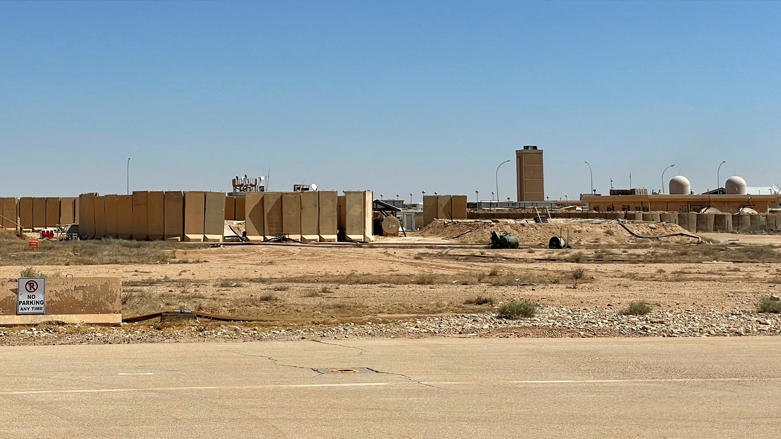US to send new Army brigade to Erbil in troop rotation
The US Army announced on Tuesday that it would send the 1st Stryker Brigade Combat Team to Iraq later this summer to support the anti-ISIS Coalition.

WASHINGTON DC (Kurdistan 24) – The US Army announced on Tuesday that it would send the 1st Stryker Brigade Combat Team to Iraq later this summer to support the anti-ISIS Coalition, formally known as CJTF-OIR (Combined Joint Task Force-Operation Inherent Resolve.)
The Stryker Brigade will come out of Fort Carson, Colorado, and some 1,800 personnel will replace the 256th Infantry Brigade Combat Team from the Louisiana National Guard, which will return to the US.
The 256th Infantry Brigade deployed to Erbil last January, when it replaced troops from the 82nd Airborne.
Over the course of 2020, CJTF-OIR consolidated its positions into two major bases: Erbil International Airport in the Kurdistan Region and Ain al-Asad Air Base in Iraq’s western Al-Anbar province.
At the same time, Coalition forces shifted from a combat role to an assist and advisory role, intended, at least in part, to reduce pressure from pro-Iranian-elements in Iraq, including Iranian-backed militias, that aims to end the US military presence there.
Nonetheless, such pressure has continued. Over the past three days—Monday, Tuesday, and Wednesday—the militias have carried out four attacks on US targets in Iraq.
On Monday, there were two assaults: an attack on Ain al-Asad Airbase, involving three rockets and an attempted drone attack on the US embassy in Baghdad. On Tuesday, there was a drone attack on Erbil International Airport, and on Wednesday, there was another, bigger rocket attack on Ain Al-Asad, involving 14 rockets, and causing minor injuries.
The US has defenses against missiles and rockets, but not, so far, against the relatively new explosive-laden drones. That said, the drone targeting the US embassy was shot down, so, perhaps, the technology to shoot down drones is emerging rapidly.
In key respects, the drones pose a greater threat than the rockets, because when they use GPS technology, they can be much more accurate—which the drones used by the Iranian-backed militias now do.
Source of GPS Coordinates Used to Attack Covert Sites in the Kurdistan Region?
Earlier this year, the CIA hanger at Erbil Airport was attacked by a drone, as was the Harir Airfield, which is used by the Joint Special Operations Command (JSOC.)
That the location of such sensitive sites was known to hostile forces “alarmed Pentagon and White House officials,” The New York Times said.
Miriam Taha Thompson, a Lebanese-American, was based in Erbil, where she served as a translator for US Special Forces. She fell in love with a man who had ties to Lebanon’s Hizbollah and began spying for Hizbollah at his direction.
She was arrested in February 2020 and then pled guilty to charges of spying for the terrorist group. Last month, she was sentenced to 23 years in prison.
Previously, this reporter suggested that she might have been the source of the information about the location of the sensitive sites and followed the US Justice Department in suggesting that the information she passed onto Hizbollah—and by extension to Iranian intelligence—could have come from her search of classified US computer databases.
But if Thompson was the source of the details about the coordinates, there is another possibility. Perhaps, she just had a smartwatch and recorded the location of each site she visited in the course of her work. In that case, every such site would now be vulnerable to drone attacks.
Mustafa al-Kadhimi to visit Washington
US officials have disclosed no date, but it is widely reported that Iraqi Prime Minister Mustafa al-Kadhimi will visit Washington later this month, when he will meet US President Joe Biden.
The Biden administration has repeatedly said that it is committed to continuing the fight against ISIS—despite the US withdrawal from Afghanistan. That point is reinforced by the announced deployment of the Stryker Brigade to Erbil.
One can expect a continuation of the Strategic Dialogue, which was begun under Secretary of State Mike Pompeo. That would, most probably, include the presence and composition of US forces in Iraq, as well as how to stop the attacks on US targets by the Iranian-backed militias in Iraq.